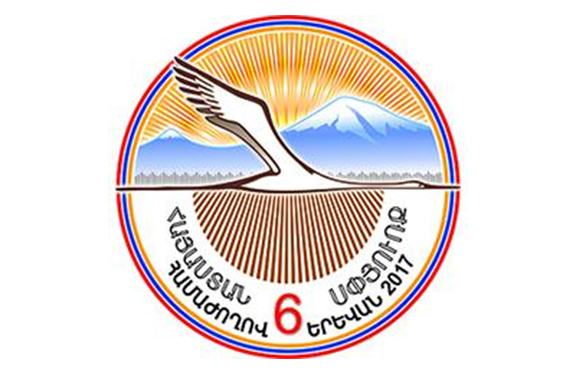(asbarez.com, RFE/RL) — President Serzh Sarkisian is pressing ahead with plans to form an advisory “pan-Armenian council” that will consist of senior officials from Armenia and representatives of its worldwide Diaspora.
Sarkisian met with the chairman of the Armenian Constitutional Court, Gagik Harutiunyan, and other state officials on Friday to discuss ongoing preparations for the inaugural session of the council which his office said will take place next year.
Plans for creating such a body were first announced in 2015 by a high-level commission that organized official commemorations of the 100th anniversary of the Armenian genocide in Ottoman Turkey. The commission was headed by Sarkisian and comprised other senior Armenian state officials as well as the top clerics of the Armenian Apostolic Church and leaders of some Diaspora organizations.
It was agreed that the council will seek greater international recognition of the genocide, examine “conditions of Armenians around the world” and coordinate “pan-Armenian activities.” Practical modalities of its creation were supposed to be worked out by a task force headed by Harutiunyan and Vigen Sargsyan, the then chief of the presidential staff who became Armenia’s defense minister last October.
A statement by the presidential press service said Harutiunyan presented “approaches and mechanisms” for the council’s formation during Friday’s meeting chaired by Sarkisian. It said the head of state instructed officials to draft a package of corresponding decisions that will be discussed at an Armenia-Diaspora conference slated for next month. One of those documents will relate to “the agenda of the first council meeting to be held in 2018.”
The statement did not specify whether the Pan-Armenian Council will hold its first meeting before or after Sarkisian completes his final presidential term in April 2018. The president has still not publicly clarified whether he plans to stay in government in another capacity.
There are an estimated 8 million to 9 million ethnic Armenians around the world. Only up to 3 million of them live in Armenia. Most of the others reside in Russia, the United States, Europe and the Middle East.








